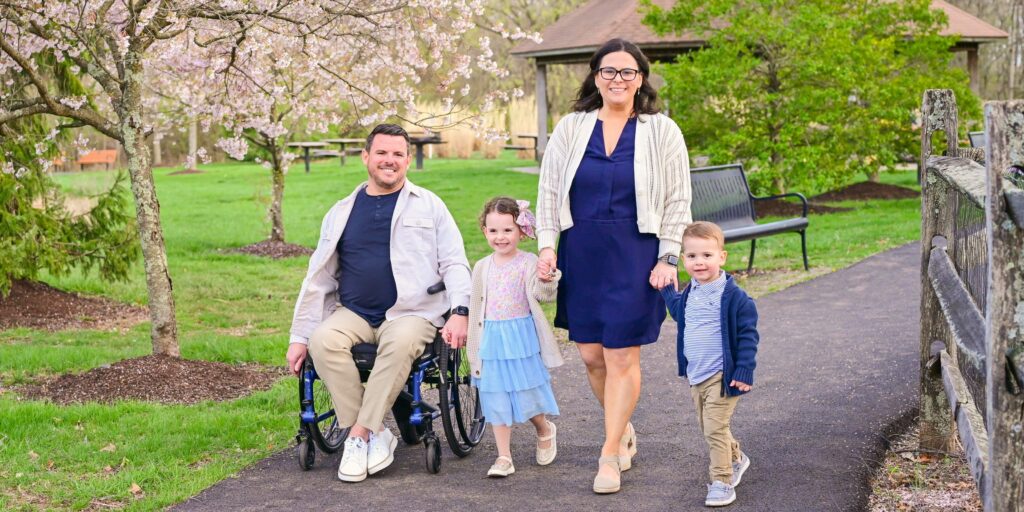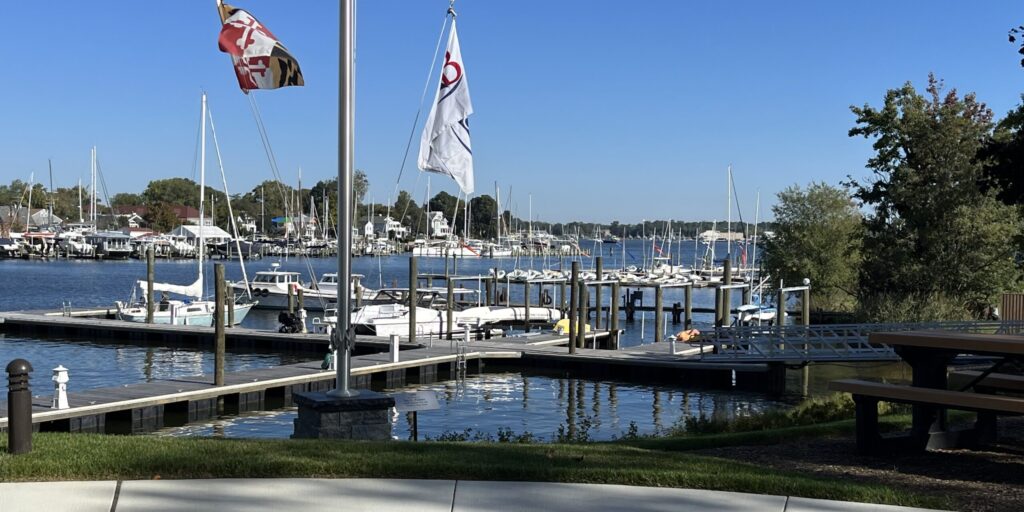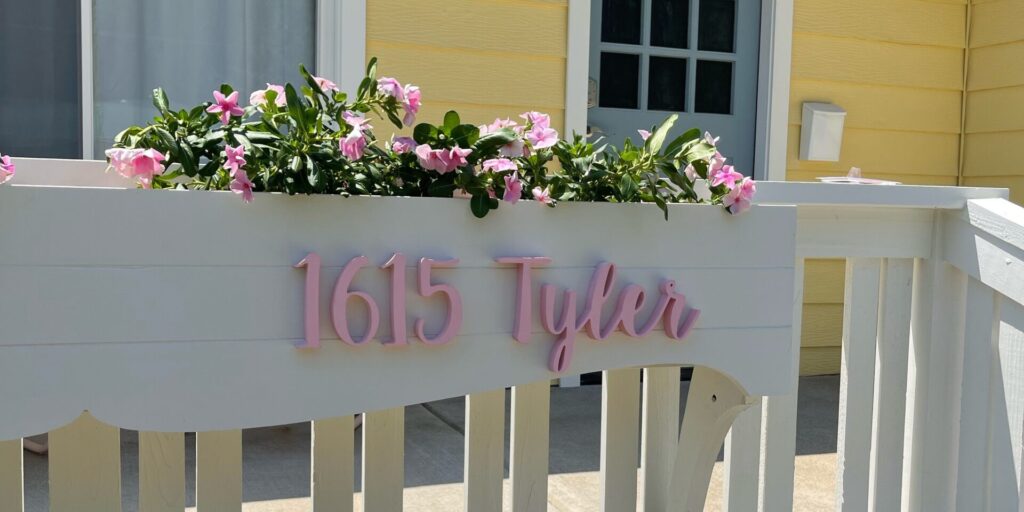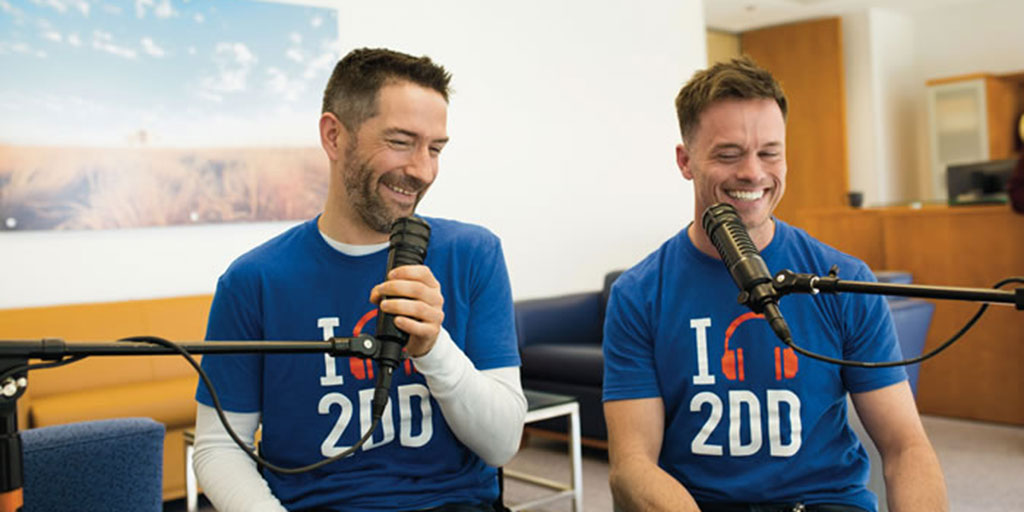
Creating Awareness
By Elizabeth Millard | Friday, August 20, 2021
Navigating the impacts of a neuromuscular disease can be challenging enough, but added on top of that is the responsibility to educate others — talking to people at work, school, and in the community about disability awareness. Although having to address this issue again and again can be exhausting, the effort is crucial, believes Stephanie Bowers-Legg, who lives with myasthenia gravis (MG).
Stephanie, a servicing operations associate at the financial technology company Brex, based in Vancouver, Wash., runs an employee resource group for people with disabilities and their allies. She also set up a private Slack channel for her colleagues with disabilities and organizes in-person events where they can meet and share experiences.
Stephanie discovered the need for more awareness and advocacy after she was diagnosed six years ago at age 23 and became an ambulatory wheelchair user. The confusion and occasional disbelief she encountered about why she would need a wheelchair on some days but not others made her realize that many people would benefit from disability education.
“In general, my disability tends to be an invisible one, and that makes it harder for people to understand, which is why giving them more information is crucial,” she says. “I’m really open to talking about it, especially when meeting new people, because I think we need to normalize the conversation about this.”
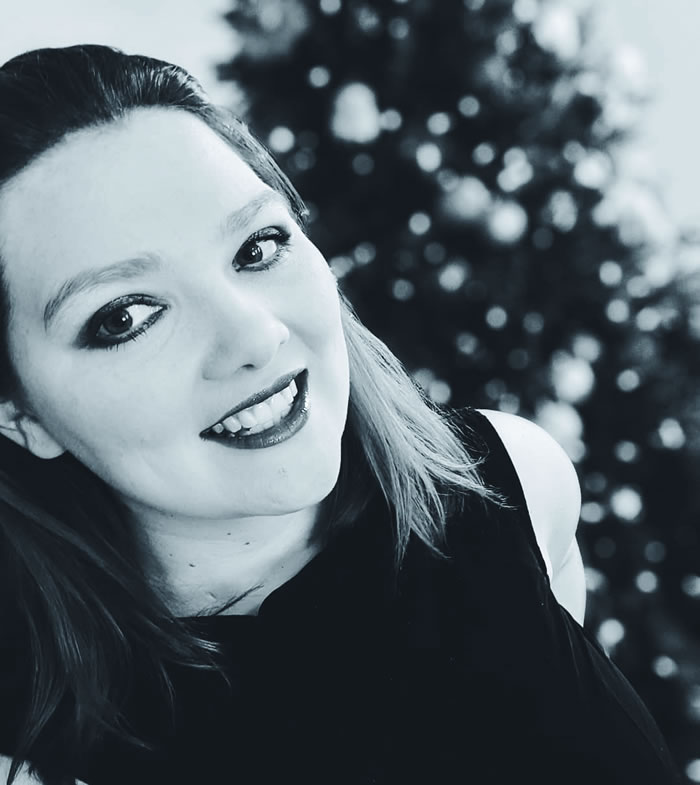
Stephanie Bowers-Legg spreads disability awareness at work.
By connecting people together at her work, Stephanie helps them learn ways to talk about their own disabilities and provides much-needed support and encouragement.
“Having a shared experience can make you feel confident when you’re talking to people on your own,” she says. “You know you’re not alone.”
Seeing the other side
When addressing disability issues, it can help to team up. That was the case for Kyle Bryant and Sean Baumstark, who both have Friedreich’s ataxia (FA). The pair did a cross-country bike ride in 2010 that was filmed by a documentary film crew, and talking about what it was like to live with disability on camera inspired them to keep the conversation going.
In 2016, the friends started a podcast, Two Disabled Dudes, and Kyle says even after a few years, people still seem surprised that they have such a good time on the show.
“For some reason, people don’t associate disability with laughing and having fun, but that’s part of building awareness for us,” he says. “We want to show people that maybe their assumptions about disability are more limited than they think.”
Kyle, who lives in Sacramento, Calif., adds that both of them have experience being on “the other side” when it comes to disability because he wasn’t diagnosed until he was 17 and Sean was diagnosed at 25. That gives them a unique perspective, Kyle believes, because in many ways, they’ve had to confront their own misconceptions about disability, which gives them empathy toward listeners and others. That type of self-reflection can be useful, because it can give advocacy and awareness more depth.
“It’s important for us to recognize that we may have some remnants of ableist views,” he says. (For more on ableism, read “Advocating Against Ableism.”) “But seeing that helps us deepen the conversation in many ways. It’s sometimes a view we have to work against to make sure we’re approaching things in the right way.”
Expanding the scope
Everyday conversations at work or in the community often are opportunities to educate others, but many who advocate for more disability awareness also set up structured talks that can reach a much wider audience.
For example, Bettemarie Bond, who lives in Levittown, Pa., with mitochondrial myopathy (MM), gives presentations to groups like first-year medical students at the University of Pennsylvania School of Medicine, attendees at meetings for major medical manufacturing companies, legislators attending Rare Disease Week on Capitol Hill, and medical professionals attending seminars for continuing education.
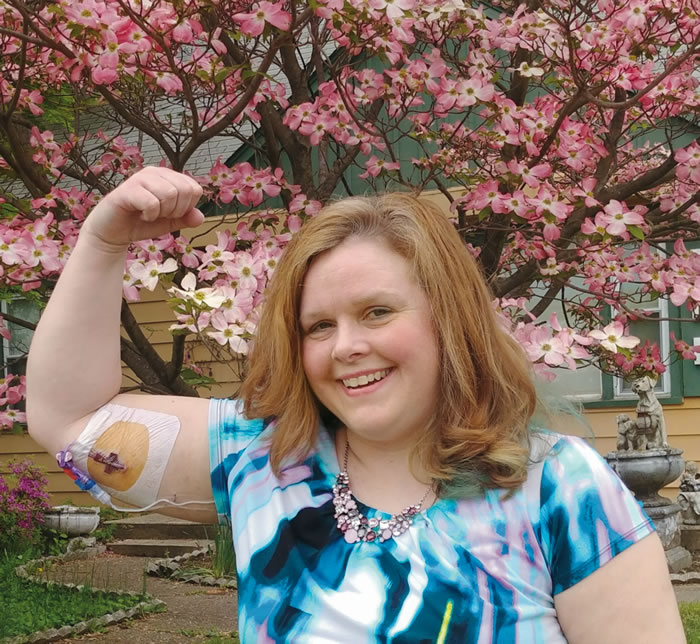
Bettemarie Bond speaks publicly about disabilities.
“I try to make the most of every opportunity,” she says. “My world was turned upside down when I started experiencing symptoms and was diagnosed as a teenager. I went from being a state champion in gymnastics to needing help to push my IV pole at home. All my dreams were gone. I lost my purpose.”
Although these talks and even online interactions can leave her exhausted, Bettemarie is determined to maintain a high level of advocacy, because she feels that her efforts make a difference.
Not only is there greater awareness for individuals, but there’s also a potentially huge ripple effect — for example, by speaking to medical students, nurses, doctors, hospital administrators, legislators, patient organizations, and equipment manufacturers, she’s driving deeper understanding of neuromuscular disease in a way that will be used for patient interactions, policy change, and innovation.
“My mom taught me to advocate for myself,” Bettemarie says. “It was not easy; I avoided speaking up at first because I didn’t want to hurt people’s feelings by challenging their assumptions. But gradually I realized this was what they needed to hear because it helps other people with disabilities. It’s important to create awareness.”
Elizabeth Millard is a freelance writer in northern Minnesota.
Find Your Voice
If you’re just getting started with talking about disability or have struggled to address it in the past, the advocates here offer some advice:
Learn about your condition. For Stephanie Bowers-Legg, researching her condition has helped her frame how to talk to others. The more you learn, the better you can articulate your thoughts, she believes. Not only can that help when talking to people in your community, but it can also be useful when building awareness among the medical professionals you see.
Keep making connections. Because Stephanie has done so much research on her condition and is a strong advocate, her doctor sometimes asks her for advice on resources to share
with other patients. She sees all her conversations as an opportunity to forge more connections, and those can lead to unexpected opportunities.
Protect your energy. Although there’s a great deal of work to be done around disability awareness, you have to balance out your efforts with supporting your health, suggests Bettemarie Bond. That might mean limiting how much you do, but it’s an important long-term strategy.
Try to stay positive. No matter what you do and how much awareness you create, there will always be rude people. That can be exhausting when you’re also navigating health issues, says Stephanie, but part of protecting your energy is trying to be positive, even in the midst of negative reactions.
Empower and Educate
MDA supports our community in learning about neuromuscular disease and spreading awareness. Here are programs and services that can help.
Access Workshops
These educational workshops provide information and resources on access to care and services and overcoming barriers. Each online workshop includes videos and activities that help you build knowledge, health literacy, and self-advocacy skills. They’re available on-demand, allowing you to work through them at your own pace.
Advocacy Center
Find resources and webinars that will help you make your voice heard on issues that are important to the neuromuscular disease community.
Community Education
From disease fact sheets to in-depth guides on genetics and clinical trials, MDA provides educational materials in English and Spanish.
Engage Events
These community education programs empower individuals and families with knowledge and resources around neuromuscular disease.
Facebook Live Events
MDA tackles timely and engaging topics like the COVID-19 vaccine and accessible fashion on Facebook Live. Find past events on MDA’s YouTube channel.
TAGS: Featured Content, Mental Health, Relationships
TYPE: Featured Article
Disclaimer: No content on this site should ever be used as a substitute for direct medical advice from your doctor or other qualified clinician.


